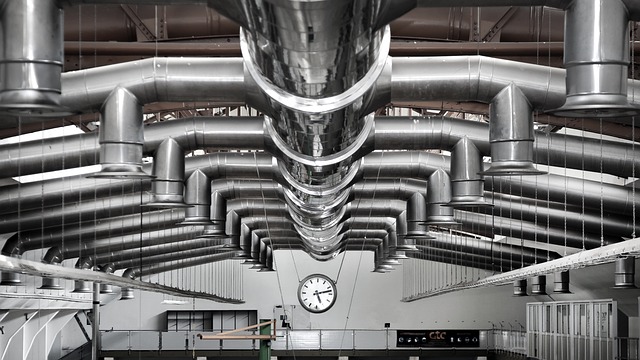What is energy saving?
If we carry out a review of all the activities we carry out throughout a day, we will be aware that electrical energy is present in most of them. Hence the importance of our being aware of different aspects to take into account regarding electricity consumption. On the one hand, some energy sources are depleted, that is, they exist in a limited way in nature and are therefore considered non-renewable . In addition, the way this energy is transported, extracted and consumed also has its impact on the environment .
For these reasons it is important to be aware of the importance of responsible energy consumption , promoting energy savings to help conserve the environment and sustainable development.
But how to save energy?
There are numerous actions that we can take into account to promote energy saving, but the simplest are found in small gestures in our daily routines . The modernization of our lifestyle has filled our homes with appliances and other electronic devices that make life easier for us, but that we must learn to use in an efficient way.
The energy consumption of household appliances
We use them every day, some even multiple times. In fact, electrical appliances account for practically half of the energy consumption in the home. But what can we do to save electricity when using our appliances? We give you some tips on the energy consumption of household appliances:
What is energy saving?
If we carry out a review of all the activities we carry out throughout a day, we will be aware that electrical energy is present in most of them. Hence the importance of our being aware of different aspects to take into account regarding electricity consumption. On the one hand, some energy sources are depleted, that is, they exist in a limited way in nature and are therefore considered non-renewable . In addition, the way this energy is transported, extracted and consumed also has its impact on the environment .
For these reasons it is important to be aware of the importance of responsible energy consumption , promoting energy savings to help conserve the environment and sustainable development.
But how to save energy? There are numerous actions that we can take into account to promote energy saving, but the simplest are found in small gestures in our daily routines . The modernization of our lifestyle has filled our homes with appliances and other electronic devices that make life easier for us, but that we must learn to use in an efficient way.
The energy consumption of household appliances
We use them every day, some even multiple times. In fact, electrical appliances account for practically half of the energy consumption in the home. But what can we do to save electricity when using our appliances? We give you some tips on the energy consumption of household appliances:
1.Washing machine. It is an appliance that consumes a lot of energy, especially when it has to heat the water. You can save energy by using cold wash programs and only using it when it is completely full.
2. Dryer. It is recommended that its use be exceptional and always prioritize the use of heat from the sun and the wind to dry clothes.
3. Dishwasher. This appliance consumes a lot of energy, especially to heat the water. It is advisable to always use it when it is full, or to use saving programs or half load when it is not.
4. Fridge. It is the appliance that consumes the most electricity in the home, so it is advisable to try to optimize its use. When we open the refrigerator door, its temperature drops and the motor starts again to cool down again. Therefore, it is advisable to try to optimize its use by opening as little as possible and never leaving the door open for a long period of time. Other tips are to place it away from the oven and use it to defrost food before using other appliances such as the oven or microwave.
5. Freezer. The ideal temperature is -15ºC. As with the refrigerator, whenever the door is opened it loses temperature, so it is necessary to make good use of it. Some tips to save energy are not to freeze all food at once and keep it full without forcing its capacity, because frozen food is a source of cold that helps the freezer to maintain its temperature and, therefore, use less electricity.
6. Oven. It consumes a lot of energy so it is recommended only for cooking and not to defrost or keep food warm. When it is in operation, it is necessary to avoid the open door because it will lose temperature and the motor will start again, with the consequent energy expenditure.
7. Microwave. Some tips to save energy using the microwave is not to open it before the cooking is finished and to place the food, preferably in pieces so that its cooking time is less. If you have cooked for a long time, leave the food inside for a couple of minutes after it has been turned off, as it will finish cooking with the heat accumulated inside.
8. Kitchen. Gas cookers are the ones that save the most energy. If the stove is made of glass ceramic, you can save energy by disconnecting it a few minutes before finishing cooking, since the heat is maintained.
9. Small household appliances . Unplugging them after using them and choosing small electrical appliances with different powers to use the necessary one in each case, are some tips that we can follow to save energy with the use of hair dryers, mixers, toasters, irons, etc.
Energy labels
When it comes to renovating the electrical appliances in our home, it is very important that we take into account their energy characteristics , since not all consume the same. To identify this in a simple way, the energy label indicating the energy consumption of household appliances was created. Its use has been mandatory since 1995 according to European Union regulations (Directive 95/12).
In the energy label, the energy consumption levels of the appliances are shown by a letter that goes from A (green color) to G (red color) , establishing seven levels. At present, when the majority of appliances of a certain type reach class A, up to three additional classes can be added to the scale: A +, A ++ and A +++. Starting in 2021, these additional scales will be phased out in refrigerators, dishwashers, washing machines, televisions and lamps due to the confusion they generate by having significantly improved the energy efficiency of these products.
As for the differences between the different levels, we must bear in mind that a class A +++ appliance, for example, consumes 22% less than a medium-type one consumes.
This measure was established to promote energy saving and sustainable development in two ways. On the one hand, encouraging consumers to bet on more efficient electronic devices to reduce their bills and, on the other, thus encouraging companies to invest in the development and design of low-consumption products.
Tips to save electricity in home air conditioning
Heating, air conditioners and air conditioners are another of the main household electricity costs. To air-condition a house in a sustainable way and save energy, some aspects must be taken into account.
Temperature : the ideal is an interior temperature of 19 to 21 º C in winter and 22 to 26 º C in summer. Leaving these recommendations, either hot or cold, will mean a greater energy expenditure
Ventilation: it is important to renew the air in the houses, but doing it correctly will help you save energy. The recommended time to ventilate without getting too cold or hot is about 10 minutes, and do it first thing in the morning
Building orientation : if you are going to build, buy or rent a home, you must take into account its orientation if you want to save on energy costs. Homes facing south or east take advantage of the sun and heat of the first part of the day, while those facing west accumulate too much heat in summer.
Thermal insulation: good home insulation is key to maintaining temperature and saving energy.
Complements to balance the temperature : the sun is a great ally to heat our home and save on electricity as long as we know how to let it in in winter and avoid its passage in summer.
Windows : double glazing saves 25% energy in heating and isolates from outside noise.
Blinds : help to ventilate the house in summer blocking the passage of the sun.
Curtains: they allow to conserve the heat of the rooms in winter and avoid the sun in summer.
Devices to cool the environment: the fan consumes less energy than the air conditioner.
Appliances to heat the environment : centralized gas heaters consume the least.
Radiant floor : it is useful to have a constant temperature in all rooms, because it spreads heat through the floor.
Tips to save on home lighting
Making the most of natural light is the key to how to save electricity in the consumption of electricity to illuminate our home. The ideal is to combine it with conventional or compact fluorescent lamps (known as low consumption) or LEDs and not incandescent or halogen bulbs, which are the ones that consume the most.
A tip to light a large space efficiently is to do it with a single higher wattage lamp, and not with several smaller wattage lamps.
Tips for saving energy in electronic devices
Electronic devices in our home often cost more energy than they should. This is because these types of televisions, music or video players usually have a stand-by shutdown system that means they are never unplugged from the power and, therefore, the cost of electricity, although small, is permanent.
To save at home, it is advisable to study well the characteristics of each device of this type to avoid exceeding our needs. In the case of the computer, if it is necessary to leave it on, it is convenient to use tools such as energy saving modes or to program the screen to turn off.
Energy consumption in domestic hot water
Currently there are two main systems to obtain sanitary hot water (DHW), that is, hot drinking water that is used mainly for sanitary purposes or for cleaning in bathrooms or kitchens.
Instant. They are not recommended in houses with more than one bathroom because they need a lot of energy to heat the pipes during the journey. The temperature of the heater must be between 41 and 42 º C and it is necessary to avoid lowering the temperature of the hot water by mixing it with cold water because we would be wasting energy to heat the water.
Accumulators. They are more suitable for specific consumption and save more energy than instantaneous heating systems. If the water accumulator is electric there should be a clock to program it and set a time to use it.




